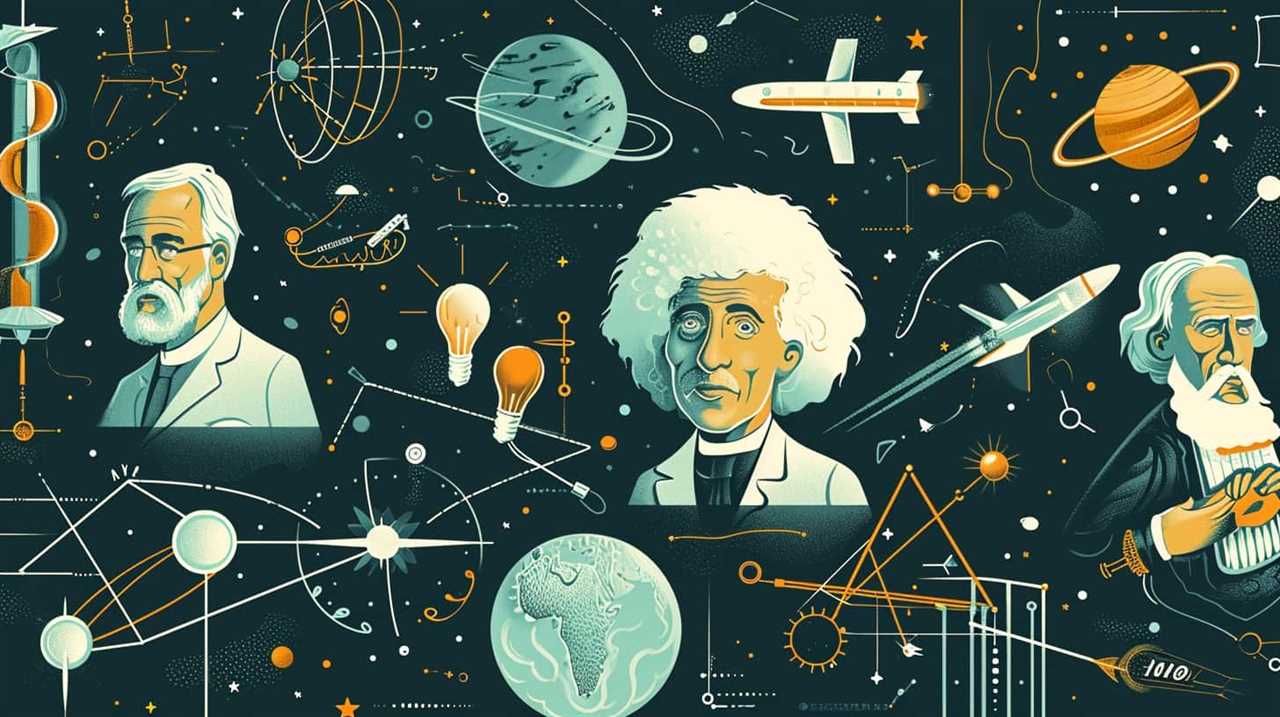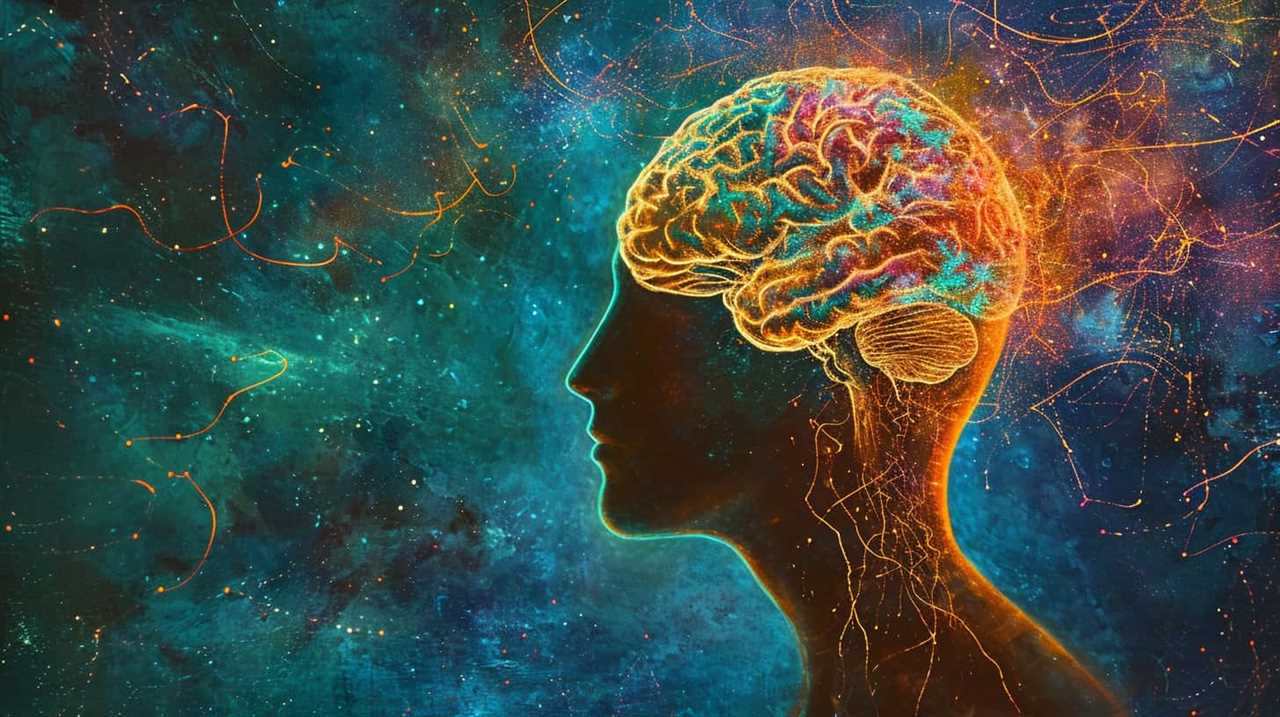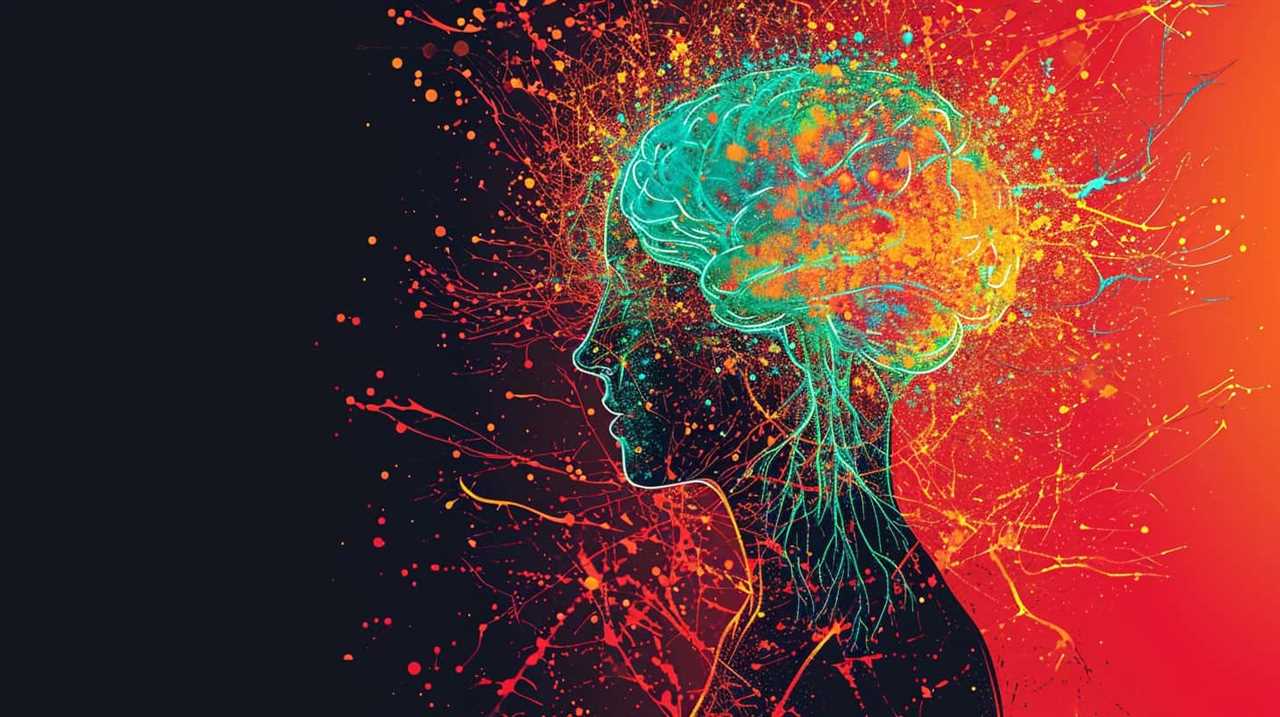In our quest for intellectual development, we have gathered a compilation of the top 8 philosophical quotes about logic and reasoning. These profound insights from some of the most brilliant minds of our time shed light on the intricate workings of the human mind and its capacity for rational thought.
From Aristotle’s nuanced exploration of deductive reasoning to Descartes’ contemplation of rationality and doubt, these quotes offer a fresh perspective on the age-old pursuit of truth. Kant’s critique of pure reason challenges conventional wisdom, while Plato’s allegory of the cave sparks a renewed appreciation for logical thinking.
Nietzsche, Hume, Russell, and Wittgenstein further unravel the complexities of logic and language, providing us with a rich tapestry of ideas to inspire innovation and intellectual growth. Join us on this exciting journey into the depths of logical reasoning.
Key Takeaways
- Deductive reasoning is a valuable tool for drawing conclusions from general principles, as emphasized by Aristotle.
- The importance of logical thinking in the pursuit of knowledge is highlighted by Plato’s Allegory of the Cave.
- Embracing irrational aspects and emotions can lead to a deeper understanding of ourselves and the world, according to Nietzsche.
- Russell and Wittgenstein’s work on language and logic emphasizes the importance of clear and precise language, as well as the complexity and subjectivity of language.

Aristotle’s Insight on Deductive Reasoning
One of Aristotle’s key insights on deductive reasoning is that it involves drawing conclusions from general principles. Aristotle’s syllogistic reasoning, which forms the foundation of deductive logic, relies on two premises and a conclusion. This method allows us to derive new knowledge by combining existing information in a systematic and logical manner.
Aristotle’s approach to deductive reasoning is particularly relevant in the context of Descartes’ rational doubt. Descartes, a prominent philosopher of the 17th century, emphasized the importance of skepticism and questioned the reliability of our senses and beliefs. However, even in the face of doubt, Aristotle’s syllogistic reasoning offers a framework to construct valid arguments and arrive at sound conclusions.
By starting with general principles that are universally accepted or proven, we can build a logical chain of reasoning that leads us to specific conclusions. This process allows for a systematic exploration of ideas, encouraging innovation and critical thinking. Rather than relying solely on intuition or subjective experiences, deductive reasoning provides a reliable method to evaluate and analyze information objectively.
In an era where innovation and groundbreaking ideas are highly valued, Aristotle’s insight on deductive reasoning serves as a valuable tool for fostering intellectual growth and advancement. By following the principles of deductive logic, we can unlock new possibilities, challenge conventional wisdom, and push the boundaries of knowledge.

Descartes’ Reflections on Rationality and Doubt
Descartes’ reflections on rationality and doubt offer us valuable insights into the nature of knowledge and the importance of skepticism. His methodological doubt, a systematic process of doubting everything that can be doubted, serves as a foundation for his philosophical inquiry. Descartes’ cogito argument, "I think, therefore I am," emerges from this doubt and asserts the existence of the self as a thinking entity. This argument highlights the indubitable nature of one’s own existence and forms the basis for Descartes’ pursuit of certain knowledge.
| Descartes’ Methodological Doubt | Descartes’ Cogito Argument | Importance of Skepticism | Nature of Knowledge |
|---|---|---|---|
| Systematic questioning and doubting of beliefs and knowledge claims. | "I think, therefore I am." | Encourages critical thinking and inquiry. | Seeks certainty and foundational truths. |
Descartes’ methodological doubt challenges established beliefs and invites a reevaluation of our assumptions. By subjecting our beliefs to rigorous scrutiny, we can discern between true knowledge and mere opinion. This skepticism is vital for innovation and progress, as it pushes us to question the status quo and explore new possibilities.
The cogito argument, on the other hand, establishes the foundation of knowledge in the individual’s own consciousness. Descartes argues that even in the face of radical doubt, the existence of the thinking self remains certain. This recognition of the self as a thinking entity provides a starting point for building a system of knowledge based on reason and rationality.

Kant’s Critique of Pure Reason
Kant’s Critique of Pure Reason challenges our understanding of knowledge and rationality. His influential work revolutionized metaphysics by questioning the limits of human reason and the possibility of attaining certain knowledge. In his critique, Kant argues that metaphysics, as traditionally understood, can’t provide us with objective knowledge about the nature of reality. He contends that our understanding is limited to the realm of appearances, and we can never fully grasp the ultimate nature of things.
Kant’s influence on philosophy can’t be understated. His Critique of Pure Reason paved the way for a new approach to metaphysics, one that recognizes the inherent limitations of human reason. Instead of seeking to uncover the ultimate truth about reality, Kant argues that we should focus on the conditions under which knowledge is possible. He introduces the concepts of a priori and a posteriori knowledge, synthetic and analytic judgments, and the transcendental unity of apperception.

Plato’s Allegory of the Cave and Logical Thinking
Plato’s Allegory of the Cave illuminates the importance of logical thinking in our pursuit of knowledge. In this allegory, Plato presents a group of people who’ve been chained inside a cave since birth, their heads fixed so that they can only see the wall in front of them. Behind them, a fire casts shadows on the wall, and these shadows are the only reality they’ve ever known. One day, a prisoner is freed and ventures outside the cave, discovering the true nature of reality. Upon returning to the cave to share this newfound knowledge, the other prisoners dismiss him as insane.
This allegory serves as a powerful metaphor for critical thinking and logical reasoning in everyday life. The prisoners in the cave represent individuals who passively accept the information they’re given, without questioning its validity or seeking deeper understanding. They rely solely on their senses, which can be easily deceived. The prisoner who escapes the cave symbolizes the philosopher who engages in critical thinking, questioning the world around them and seeking knowledge beyond appearances.
Logical reasoning is essential in our pursuit of knowledge because it allows us to distinguish between truth and illusion. It compels us to question assumptions, challenge biases, and seek evidence to support our beliefs. By employing logical thinking, we can analyze arguments, evaluate evidence, and arrive at sound conclusions. It helps us navigate the complexities of the world and make informed decisions.
In our everyday lives, logical reasoning enables us to make sense of the information presented to us. It helps us separate facts from opinions, identify logical fallacies, and recognize faulty reasoning. It encourages us to think critically, evaluate arguments, and form our own opinions based on evidence and reason, rather than blindly accepting the status quo.
Plato’s Allegory of the Cave reminds us of the importance of logical thinking in our pursuit of knowledge. It urges us to question our assumptions, challenge our beliefs, and seek truth beyond appearances. By embracing logical reasoning, we can break free from the confines of the cave and embark on a journey towards enlightenment and innovation.

Nietzsche’s Perspective on Logic and Irrationality
Nietzsche’s perspective on logic and irrationality offers a critical examination of the limitations of rationality in understanding the complexities of human existence.
One key point is Nietzsche’s belief that rationality alone can’t capture the full range of human experiences and emotions.
He argues that embracing the irrational aspects of our nature allows for a deeper understanding of ourselves and the world around us.
Nietzsche and Rationality
In exploring Nietzsche’s perspective on logic and irrationality, we encounter a thought-provoking examination of the relationship between reason and human nature. Nietzsche’s critique of reason challenges traditional notions of rationality, arguing that it is not the ultimate arbiter of truth and knowledge. He suggests that reason is often influenced by unconscious drives and instincts, leading to biased and limited perspectives. Nietzsche believes that the human mind is inherently irrational, and that embracing this irrationality can lead to a deeper understanding of ourselves and the world around us. He encourages us to question the assumptions and biases that underlie our reasoning, and to embrace the chaotic and unpredictable nature of existence. By doing so, we can open ourselves up to new possibilities and innovative ways of thinking.
| Nietzsche’s critique of reason | Understanding irrationality |
|---|---|
| Challenges traditional notions | Explores the influence of unconscious drives and instincts |
| Questions assumptions and biases | Embraces chaos and unpredictability |
| Encourages innovative thinking | Promotes a deeper understanding of self and the world |
Logic Versus Irrationality
Exploring the interplay between logic and irrationality, we delve into Nietzsche’s unique perspective on the subject.
Nietzsche believed that logic and emotions are intimately connected, and that rationality in decision making can’t be divorced from our emotional state. He argued that traditional notions of rationality, which prioritize logical reasoning and objective analysis, fail to acknowledge the role of emotions in shaping our thoughts and actions.
According to Nietzsche, our emotions influence our perceptions, judgments, and choices, and ignoring them leads to a limited understanding of human nature. He believed that embracing irrationality, rather than suppressing it, allows for a more holistic approach to decision making.
Nietzsche’s perspective challenges the conventional understanding of logic and rationality, urging us to embrace the complexity of our emotional lives in our pursuit of truth and understanding.
Nietzsche’s Critique of Reason
We will now delve into Nietzsche’s critique of reason and his unique perspective on the interplay between logic and irrationality. Nietzsche’s influence on philosophy can’t be overstated, and his critique of reason is a fundamental aspect of his work.
Here are three key points to consider:
- Rationality as a limited perspective: Nietzsche argues that reason isn’t the ultimate arbiter of truth. Instead, he suggests that rationality is a subjective lens through which we view the world, shaped by our own biases and perspectives.
- Embracing irrationality: Nietzsche challenges the notion that logic and reason are the only valid ways of understanding the world. He emphasizes the importance of embracing irrationality and exploring the depths of our emotions, instincts, and desires.
- Transcending binary thinking: Nietzsche’s critique of reason extends to the limitations of binary thinking. He encourages us to move beyond simplistic dualities and embrace complexity, recognizing that the world is multifaceted and can’t be neatly categorized.
Nietzsche’s perspective on rationality and irrationality invites us to question traditional notions of truth and explore alternative ways of understanding the world.

Hume’s Skepticism and Inductive Reasoning
Through our examination of Hume’s skepticism and the role of inductive reasoning, we’ve come to understand the limitations inherent in our pursuit of certainty. Hume’s skepticism challenges the foundation of our belief in the reliability of induction, which is the process of drawing general conclusions from specific observations. While induction has been a cornerstone of scientific inquiry, Hume argues that our reliance on it’s unfounded. He asserts that our past experiences can’t provide us with any guarantee of future events, as there’s no logical necessity that the future will resemble the past. This skepticism exposes the inherent limitations of induction and calls into question our ability to attain certainty through reason alone.
Hume’s skepticism presents a profound challenge to our understanding of the world. It forces us to confront the fact that our knowledge is based on probabilistic reasoning rather than absolute certainty. This recognition pushes us to seek alternative methods of inquiry and to embrace a more nuanced approach to understanding the world. It encourages us to question our assumptions and to recognize the limitations of our own reasoning.
In response to Hume’s skepticism, philosophers and scientists have developed new approaches to reasoning and knowledge acquisition. Bayesian inference, for example, incorporates prior beliefs and updates them based on new evidence, allowing for a more flexible and probabilistic approach to reasoning. Additionally, advancements in fields such as machine learning and artificial intelligence have provided alternative methods for uncovering patterns and making predictions.
Hume’s skepticism reminds us that our pursuit of certainty must be tempered with humility and an awareness of our cognitive limitations. It challenges us to continually question and refine our beliefs, and to embrace uncertainty as an essential part of the intellectual journey. By doing so, we open ourselves up to new possibilities and pave the way for innovation and progress.

Russell’s Logical Analysis of Language
Russell’s linguistic philosophy revolutionized the way we think about language and its relationship to logic. By analyzing language through the lens of logic, Russell sought to uncover the underlying structure and meaning behind our words.
This approach views language as a tool for logical analysis, enabling us to better understand the world and communicate our thoughts with precision and clarity.
Russell’s Linguistic Philosophy
In our exploration of logic and reasoning, we frequently encounter the profound insights of Russell’s Linguistic Philosophy, which offers a logical analysis of language. Russell’s influence in the field of philosophy can’t be overstated, as he played a pivotal role in what’s known as the ‘linguistic turn.’ This turn shifted the focus of philosophical inquiry towards the analysis of language and its relationship to thought and meaning.
- Russell emphasized the importance of clear and precise language in philosophical discussions, recognizing that ambiguous or vague language can lead to confusion and misunderstanding.
- His logical analysis of language aimed to uncover the underlying structure and logical forms of propositions, allowing for a more rigorous examination of their truth or falsehood.
- Russell’s Linguistic Philosophy also highlighted the crucial role of logic in our understanding of the world and in the pursuit of knowledge.
With this foundation in Russell’s Linguistic Philosophy, we can now delve into the process of analyzing language and logic in greater detail.
Analyzing Language and Logic
We can begin by examining how linguistic analysis sheds light on the relationship between language and logic.
Analyzing language allows us to uncover the underlying structures and patterns that govern logical reasoning. By breaking down sentences and statements, we can identify the logical operators, such as conjunctions and disjunctions, that connect different propositions.
This analysis enables us to determine the validity of arguments and evaluate the soundness of claims. Additionally, linguistic analysis helps us identify fallacies and inconsistencies in reasoning by exposing ambiguities or equivocations in language use.
By understanding the intricacies of language and its logical implications, we can refine our thinking and communication, leading to more precise and effective reasoning.
This approach to analyzing language and logic opens up new avenues for innovation and breakthroughs in various fields of study.
Language as Logical Analysis
Language serves as a powerful tool for logical analysis, allowing us to uncover the underlying structures and patterns that govern reasoning. In the field of linguistics, logical analysis plays a crucial role in understanding how language functions as a system of communication.
Here are three key ways in which language contributes to logical reasoning:
- Language as a vehicle for expressing logical concepts: Through language, we can articulate complex ideas, formulate arguments, and convey logical relationships between different propositions.
- Language as a means of clarifying and refining logical thinking: By carefully examining the words and phrases we use, we can identify inconsistencies, fallacies, and ambiguities in our reasoning, leading to more precise and robust arguments.
- Language as a tool for constructing logical systems: Linguists and logicians use language to create formal languages, such as predicate calculus or propositional logic, which allow for rigorous logical analysis and proof.
The role of language in logical reasoning can’t be overstated. It provides us with the means to explore, analyze, and communicate our thoughts in a logical and systematic manner, fostering innovation and advancement in various fields.

Are Eastern Philosophy Quotes on Consciousness Compatible with Western Philosophical Quotes on Logic and Reasoning?
Many believe that the best eastern philosophy quotes on consciousness can be compatible with western philosophical quotes on logic and reasoning. While eastern thought emphasizes self-awareness and mindfulness, western philosophy focuses on rationality and critical thinking. However, both traditions ultimately seek to understand the nature of consciousness and its relationship to the world.
Wittgenstein’s Language Games and Logical Relationships
Exploring the connections between Wittgenstein’s language games and logical relationships reveals the intricacies of understanding the interplay between language and logic. Wittgenstein’s influence on philosophy was profound, particularly in his examination of language games and their relationship to meaning. Language, according to Wittgenstein, isn’t just a tool for communication but is deeply intertwined with our understanding of the world.
Wittgenstein’s concept of language games highlights the idea that language isn’t a fixed entity with a universal meaning, but rather a collection of different language games with their own rules and contexts. These language games provide the framework through which meaning is created and understood. By participating in these language games, individuals establish shared meanings and engage in a process of communication.
In the realm of logical relationships, Wittgenstein’s language games offer a unique perspective. He argues that logic isn’t something separate from language, but rather emerges from our use of language. Logical relationships aren’t determined by some external set of rules, but rather by the specific language games we engage in.
Understanding the interplay between language games and logical relationships allows us to appreciate the complexity and subjectivity of language. It challenges us to question our assumptions about meaning and encourages us to explore the diverse ways in which language shapes our understanding of the world. Wittgenstein’s insights continue to inspire innovative thinking in philosophy and beyond, inviting us to constantly reevaluate the relationship between language and logic.

Frequently Asked Questions
How Does Deductive Reasoning Differ From Inductive Reasoning?
Deductive reasoning differs from inductive reasoning in that deductive reasoning starts with general premises and draws specific conclusions, while inductive reasoning starts with specific observations and draws general conclusions. This distinction affects the strengths and limitations of each approach.
What Is the Significance of Descartes’ Concept of Doubt in the Realm of Rationality?
The significance of Descartes’ concept of doubt in the realm of rationality lies in its ability to challenge and question our beliefs, paving the way for critical thinking and the pursuit of truth.
How Does Plato’s Allegory of the Cave Relate to Logical Thinking?
Plato’s allegory of the cave is an insightful metaphor that relates to logical reasoning. It highlights the journey of enlightenment, encouraging us to question our perceptions and strive for deeper understanding, a fundamental aspect of Plato’s philosophy.
What Is Nietzsche’s Perspective on the Role of Logic in Understanding Irrationality?
Nietzsche’s perspective on the role of logic in understanding irrationality is a critique of rationality and logic in his philosophy. He challenges the notion that logic alone can fully grasp the complexities of human behavior and the irrational aspects of existence.
What Are Some of the Key Principles of Hume’s Skepticism and How Do They Relate to Inductive Reasoning?
Some key principles of Hume’s skepticism include the idea that knowledge is based on experience and that we cannot rely on inductive reasoning. This challenges the significance of Descartes’ concept of doubt in rationality.

Conclusion
In the realm of logic and reasoning, we find ourselves on a journey through the intricacies of the human mind and the complexities of the world we inhabit.
From Aristotle’s deductive reasoning to Wittgenstein’s language games, each philosopher offers a unique perspective that challenges our understanding and encourages us to delve deeper into the depths of our own thoughts.
Like a mosaic of ideas, these philosophical quotes form a tapestry that illuminates the path towards truth and enlightenment.









